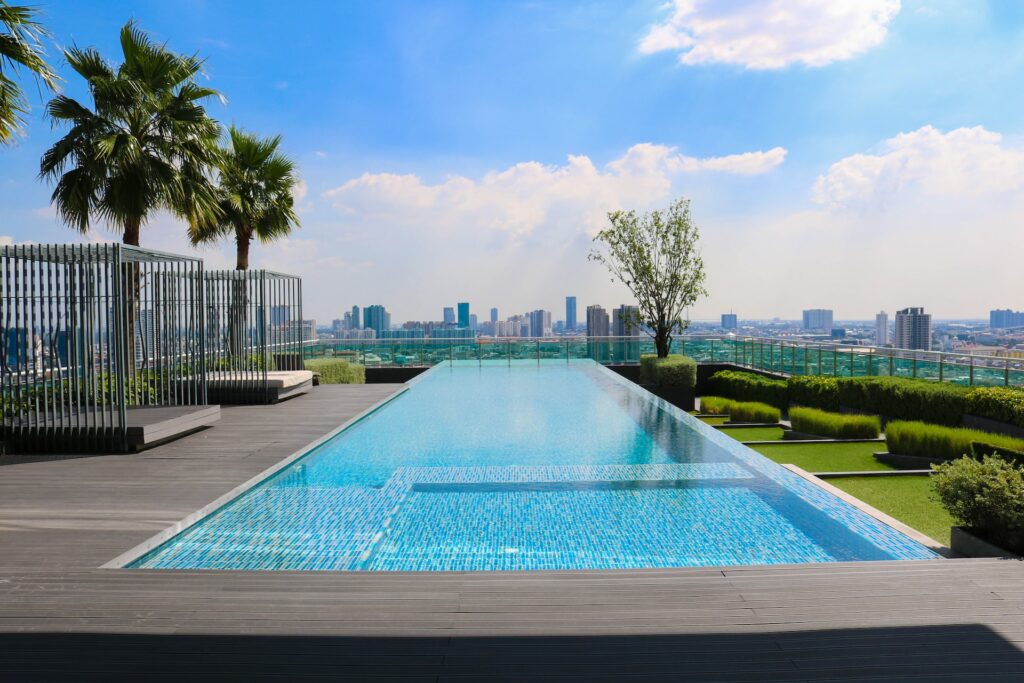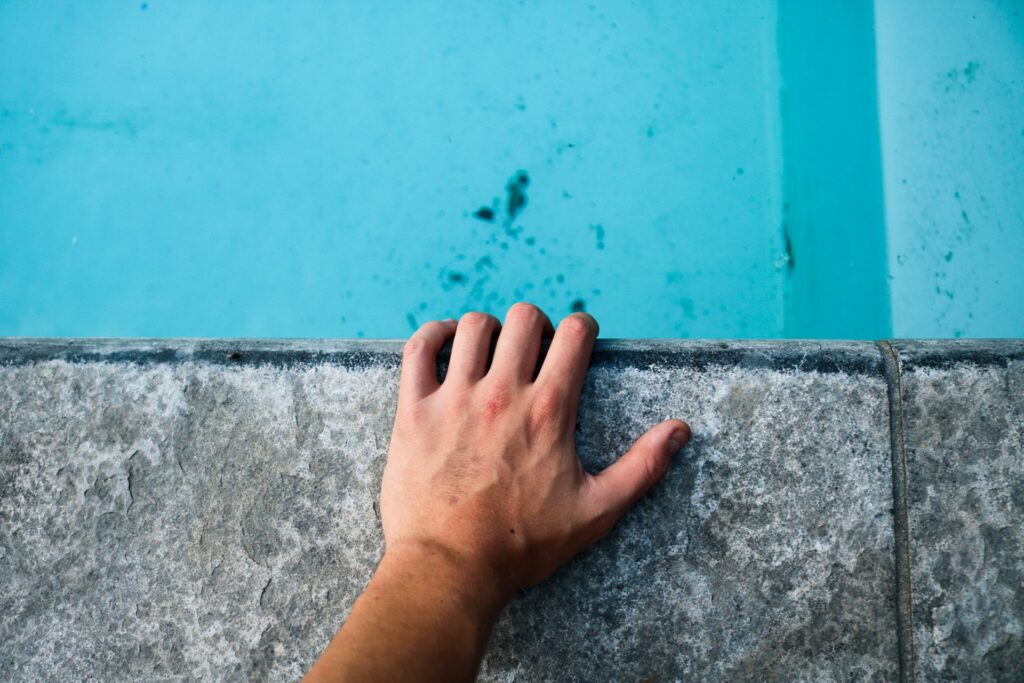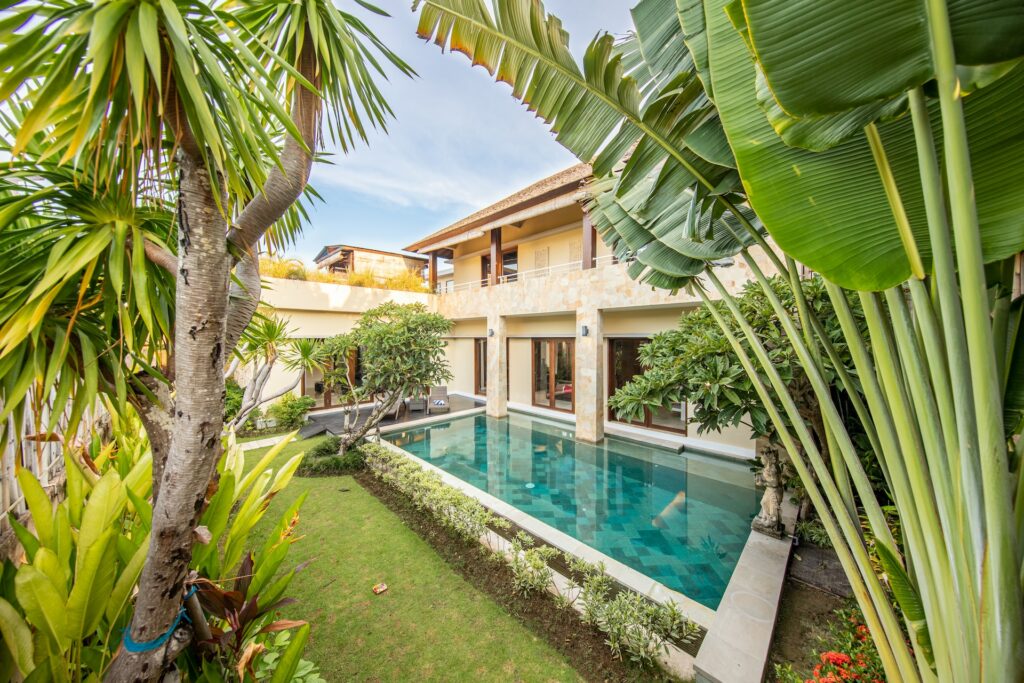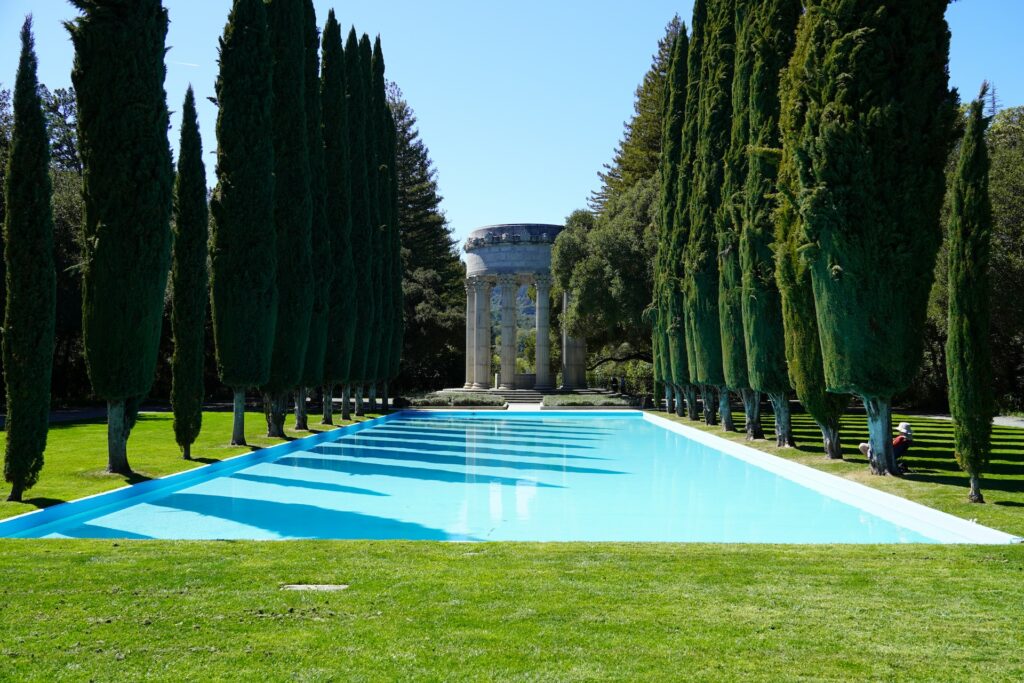Will pool water kill grass? Nothing makes summer more enjoyable than a backyard pool. It’s a fantastic method to beat the heat while still exercising.
However, if you have a pool in your backyard, you might be concerned about how the pool water would affect your landscape.
Pool water does not damage grass, but too much chlorine and other chemicals in the pool might harm your lawn, especially if you frequently drain the pool water onto the lawn.
Extra chlorinated pool water from frequent splashes alters the soil pH and can burn your turfgrass, turning it yellow or brown.
Can chlorine swimming pool water kill grass?
Cement often encircles home swimming pools. Turf is often planted on the pool’s edge in more contemporary swimming pool designs. In contrast to hot cement, this provides the swimming pool with a more natural appearance and is softer on bare feet.
If you own an above-ground swimming pool, it most certainly rests on a piece of grass. Above-ground pools and pools where turf is growing nearby are both included in the “splash zone” surrounding a pool.
Despite your best efforts, there will be splashes when playing in the swimming pool.
Fortunately, sprays of chlorinated pool water usually don’t harm grass. There is an incredibly low concentration of pool chemicals in a splash of pool water. The grass can take a few splashes as long as your lawn is in good shape and your pool is not overly chlorinated.
So, if you’re worried about the question “Does chlorine swimming pool water kill the grass?” while watching your kids swim around, stop doing it.

Reasons not to drain pool water on the lawn
Too much salt in saltwater pools
Due to the damaging effects, saltwater may have on grass, swimming pool water may also harm your lawn. Epsom salt should not be applied to grass because of this.
Because salt is prevalent in the soil in most places in various proportions, grass can tolerate a modest quantity of salt. However, issues arise when the salt concentrations rise, since salt makes it more challenging for plants to obtain enough water and nutrition.
If you believe that the soil in your lawn has been contaminated by swimming pool water or is overly salty, you can try washing it away by soaking it in a lot of fresh water.
Algaecides in pool water
The pool water that contains both chlorine and algaecides has the lowest risk of harming vegetation. Turfgrass is less likely to be damaged by chlorinated water since algaecides lower the chlorine levels.
Additionally, algaecides by themselves are not toxic to grass, and this is especially true when they are diluted in pool water.

Bromine can kill grass in extreme cases
You might wish to refrain from draining water onto your yard if you use bromine to maintain your swimming pool spotlessly.
Since the concentration of bromine in pool water is too low to have a significant influence, occasional splashes of pool water on your lawn won’t harm or eradicate the grass.
However, if you consistently empty the pool water onto your grass, the bromine will build up in the tissues and root system of the lawn and eventually cause it to die. Draining pool water into your lawn
You will inevitably encounter circumstances when you need to drain some water from your pool as a pool owner. There are several reasons why this might happen, like when it overflows during a rainstorm.
Another frequent cause is when the pool’s chemical balance is so drastically out of balance that chemical therapy is unreasonable.
You might have to drain some water if either of these things occurs. There are actions you should do both before and after draining as a result. Instead of letting the water seep into your yard, you should try to drain your swimming pool into a sanitary sewer or a clear area.

Reduce chlorine concentration or salt before draining your pool water
The majority of people rarely empty their pools. The best way to do this is to use the sewer clean-out system in your home.
It’s wise to verify with your local authorities first. Some cities permit residents to drain swimming pool water into the street.
You might think about lowering the pool chemicals, chlorine concentration, or salt level a few days ahead of time if you want to drain the water from your swimming pool onto your lawn.
Water your grass thoroughly after draining into it
Water your grass well to remove any lingering salt or chlorine after emptying the swimming pool’s water onto it.
Since salt doesn’t evaporate, it is impossible to remove the salt from saltwater pools. If you wish to drain the pool, direct the water into the sewage clean-out line in your house.
Bottom line
Does pool water kill grass, then? Well, not until you empty the entire pool of water onto it. Splashes of pool water at random are not dangerous.
While bromine can build up in the grass’s root system and kill it, chlorine levels can be hazardous in big doses to micronutrients. Large quantities of copper found in algaecide can hinder grass growth and give it a lifeless appearance.
The best and safest way to dispose of chlorinated pool water is to discharge it to a sanitary sewer. Periodic splashes of seawater or chlorinated water are OK.
FAQs
Will chlorine water from a pool kill grass?
The majority of soils can survive chlorine at high acidity levels. So, it’s not a problem if your kids splash chlorinated pool water on your yard as they enter and exit the pool.
Does draining the pool kill grass?
In tiny doses, pool water is completely safe for grass. Make careful to adequately dilute the chlorine level if you intend to drain your pool into your yard. When draining, take care not to flood your lawn because that would destroy the grass.
Will grass come back after a pool?
There is absolutely no way to avoid it. The grass beneath the pool will eventually die. To reseed the lawn, spread the grass seed by hand along the borders of flower beds and other grassy areas.
Read also: Best time to spray dandelions, useful herbicides, and a step-by-step guide for spraying

